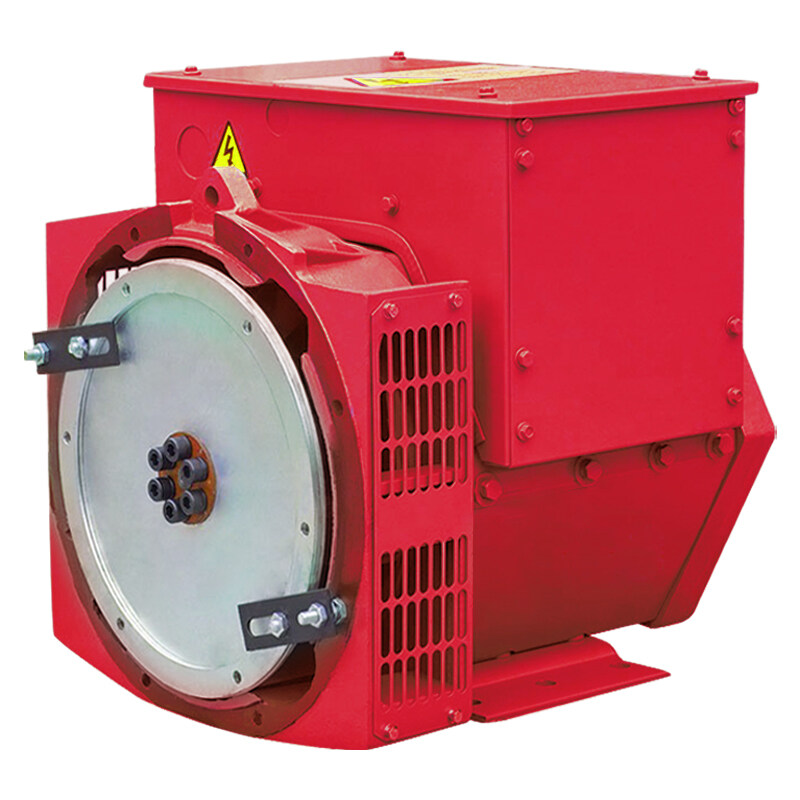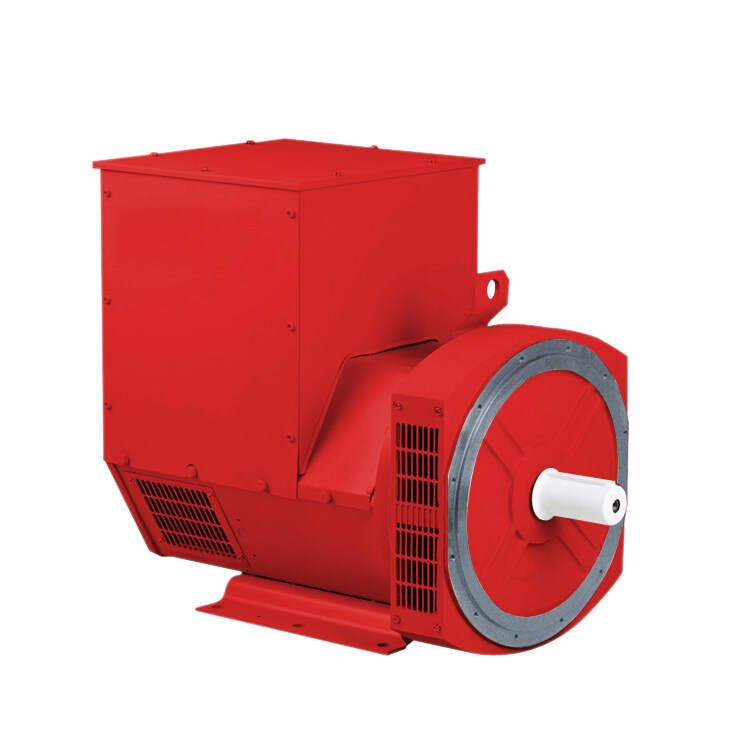Mastering the Alternator Manufacturing Process: A Comprehensive Guide
In the realm of automotive engineering, the alternator stands as a vital component, serving as the powerhouse behind a vehicle's electrical systems. Understanding the intricacies of its manufacturing process is paramount for both engineers and enthusiasts alike. In this comprehensive guide, we delve deep into the alternator manufacturing process, exploring its various stages, technologies, and quality control measures.
The Importance of Alternators in Automotive Engineering
Before delving into the manufacturing process, it's crucial to grasp the significance of alternators in modern vehicles. From powering essential components like lights and infotainment systems to charging the battery, alternators play a pivotal role in ensuring smooth operation on the road.
Overview of the Alternator Manufacturing Process
The alternator manufacturing process encompasses several intricate stages, each contributing to the final product's performance and reliability. Let's break down these stages:
2.1 Design and Engineering Phase
The journey of an alternator begins with meticulous design and engineering. Engineers leverage advanced CAD software to conceptualize the alternator's structure, optimizing its efficiency and durability.
2.2 Raw Material Procurement
Once the design is finalized, the procurement team sources high-quality materials essential for alternator construction. These typically include copper wire, steel laminations, and permanent magnets, among others.
2.3 Component Fabrication
In this phase, individual components such as stator coils, rotor assemblies, and voltage regulators are fabricated according to precise specifications. Advanced machining techniques ensure dimensional accuracy and consistency.
2.4 Assembly Line Operations
The assembly line serves as the heart of the alternator manufacturing process, where skilled technicians meticulously piece together the various components. Automation plays a significant role here, streamlining repetitive tasks and ensuring uniformity.
2.5 Testing and Quality Assurance
Before leaving the factory floor, each alternator undergoes rigorous testing to verify its electrical output, thermal performance, and mechanical integrity. Any deviations from specifications prompt corrective actions to maintain quality standards.
Advanced Technologies in Alternator Manufacturing
In recent years, advancements in materials science and manufacturing technologies have revolutionized the alternator production landscape. Let's explore some of these innovations:
3.1 High-Efficiency Windings
Utilizing high-conductivity copper alloys and innovative winding configurations, manufacturers can enhance alternator efficiency while reducing energy losses.
3.2 Integrated Voltage Regulation
Modern alternators often feature integrated voltage regulators, eliminating the need for external components and simplifying installation and maintenance.
3.3 Lightweight Materials
By incorporating lightweight materials such as aluminum alloys and composite plastics, manufacturers can reduce the alternator's weight without compromising structural integrity.
Quality Control Measures and Compliance Standards
Ensuring product quality and compliance with industry standards is paramount in alternator manufacturing. Key quality control measures include:
4.1 In-process Inspections
Regular inspections throughout the alternator manufacturing process help detect any deviations from specifications, allowing for timely adjustments and corrections.
4.2 ISO Certification
Many alternator manufacturers adhere to ISO quality management standards, demonstrating their commitment to consistently delivering high-quality products.
4.3 Failure Mode Analysis
Analyzing past failures and implementing preventive measures helps mitigate potential issues, enhancing product reliability and customer satisfaction.
Environmental Considerations and Sustainability Efforts
In the vast and complex world of automotive engineering, certain components stand out as unsung heroes, quietly powering the vehicles we rely on every day. Among these, the alternator holds a crucial position, serving as the backbone of a vehicle's electrical system. In this section, we'll delve into the importance of alternators in automotive engineering, exploring their functions, significance, and impact on vehicle performance.
The Powerhouse of Electrical Systems
At its core, an alternator is an electromechanical device responsible for converting mechanical energy into electrical energy. It accomplishes this feat through electromagnetic induction, utilizing a rotating magnetic field to generate alternating current (AC). This AC is then rectified into direct current (DC) to power various electrical components and recharge the vehicle's battery.
Essential Functions
The alternator's primary function is to supply electrical power to essential components such as:
1. Battery Charging: The alternator replenishes the battery's charge, ensuring it remains sufficiently powered to start the engine and operate electrical systems when the vehicle is running.
2. Electrical Accessories: From headlights and interior lights to power windows and infotainment systems, the alternator provides the necessary electricity to operate these accessories seamlessly.
3. Ignition System: In vehicles equipped with electronic ignition systems, the alternator supplies power to the ignition coil, enabling spark plug operation and combustion within the engine.
4. Engine Management Systems: Modern vehicles rely on a plethora of electronic sensors and control units to optimize engine performance and fuel efficiency. The alternator ensures these systems receive a steady supply of power for accurate operation.
Significance in Vehicle Performance
The alternator's role extends beyond mere electrical supply; it directly impacts vehicle performance and drivability in several ways:
1. Reliability: A properly functioning alternator is essential for vehicle reliability. Without it, the battery would quickly deplete its charge, leading to engine stalling and electrical system failures.
2. Fuel Efficiency: By efficiently converting mechanical energy from the engine into electrical power, alternators help reduce the load on the engine-driven accessories, thereby improving fuel efficiency.
3. Electrical Load Management: Alternators are equipped with voltage regulators that adjust the electrical output based on the vehicle's electrical load and operating conditions. This ensures optimal power delivery while preventing overcharging or undercharging of the battery.
4. Starting Power: During engine startup, the alternator provides the necessary electrical energy to engage the starter motor and crank the engine. A weak or malfunctioning alternator can lead to starting difficulties, especially in cold weather conditions.
Impact on Vehicle Design and Innovation
The design and integration of alternators influence various aspects of vehicle design and innovation:
1. Size and Weight: Advances in alternator design have led to the development of smaller, lighter units without compromising performance. This allows for more flexible packaging within the vehicle's engine bay and contributes to overall weight savings.
2. Integration with Hybrid and Electric Vehicles: Alternators play a vital role in hybrid and electric vehicles, where they serve as generators to recharge the high-voltage battery packs during regenerative braking or engine operation.
3. Compatibility with Advanced Electronics: As vehicles become increasingly electrified and equipped with advanced driver-assistance systems (ADAS) and connectivity features, alternators must evolve to meet the growing demand for electrical power.
Conclusion
Mastering the alternator manufacturing process requires a blend of engineering expertise, technological innovation, and unwavering commitment to quality. By understanding the intricacies of each stage, manufacturers can produce alternators that meet the demands of today's automotive landscape while paving the way for a sustainable future.



